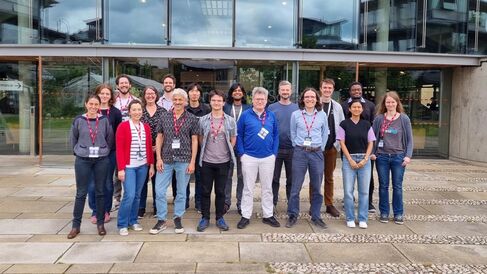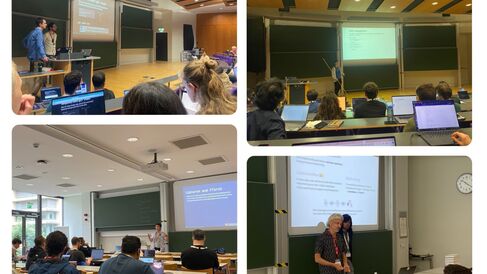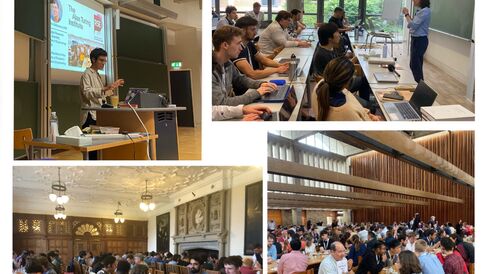
After the very successful Cross-VESRI convening, the ICCS quickly turned their attention to the Summer School in the second half of last week. Whilst it did make for an intense week, having the two events back-to-back allowed for a large international attendance from Virtual Earth System Research Institute project scientists.
This was the Institute for Computing for Climate Science's third annual summer school and biggest, most widely attended yet. The event is an opportunity to showcase and educate climate scientists on the work of the ICCS and teach key software and modelling skills. The summer school is really important in strengthening our connections with scientists in all the VESRI teams and increasing the reach of our education and research. The last two years events had been a great success in teaching these core software and programming skills for computational climate modelling.

We enjoyed three days jam-packed with science sessions, labs and workshops delivered by our Research Software Engineers (RSEs) and a number of guest speakers. To balance out the meaty academic load, we had a multitude of social opportunities to network and reflect on the sessions; lunches at Churchill college, tea, coffee and breakfast at the Department of Applied Mathematics and Theoretical Physics (where we hosted the whole event), as well as a delightful formal dinner at Madingley Hall, cheese and wine tasting and more. By having a week long event and such full days we found that we formed full and sustainable connections with other scientists that will be instrumental to our next year of work and collaboration with the VESRI teams and beyond.

We had two “tracks” of sessions from Wednesday to Friday running in parallel at slightly different levels of understanding and in different niches. This made for an even more productive summer school as attendees had the opportunity to tailor their experience to their needs and what they hoped to gain. We provided sessions on raw programming skills and best practices, such as, “Introduction to Git and GitHub”, “Coupling PyTorch with Fortran via Ftorch” and “Introduction to computational science in Julia”. As well as more climate modelling specific sessions, for example “Scientific Visualisation”, “Intro to climate and weather modelling” and “What can abstract maths tell us about programming climate models”. And finally sessions geared more towards software engineering skills, such as the code clinics, “Intro to Neural Networks with PyTorch”, “OpenMP for GPUs” and “Research Software Engineering with Python”. Finally we ended on Friday with an insightful and inspiring keynote speech from guest speaker Evelina Gabasova on the power of open source in research and beyond.
Overall the event was a huge success and attendees felt they left with a plethora of new skills and developed understanding of the role of software engineering in climate modelling and how to best utilise it for this purpose.
